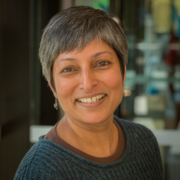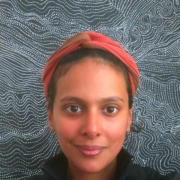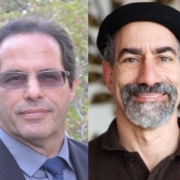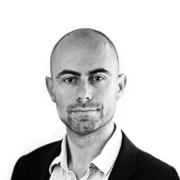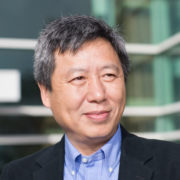In many parts of the world, students commonly attend and pay for private tutoring classes. Sometimes these extra classes are for remedial purposes, giving students additional help on content covered in mainstream school. Other times students use private tutoring to prepare for school examinations.
The phenomenon of private tutoring is diverse around the world, and researchers commonly use the term “Shadow Education” to describe it. Tutoring is considered a shadow because it often mimics the curriculum of regular schooling – as the content of the curriculum changes in regular schooling, so it changes in the shadow; and as the regular school system expands or contracts, so does the shadow system
On today’s show, Will Brehm speaks with Mark Bray, UNESCO Chair Professor in Comparative Education at the University of Hong Kong, and Director of its Comparative Education Research Centre. He is also President-Elect of the US-based Comparative & International Education Society (CIES). He moved to Hong Kong in1986, but from 2006 to 2010 took leave to work in Paris as Director of UNESCO’s International Institute for Educational Planning.
Professor Bray has written extensively on shadow education. His latest book, co-edited with Ora Kwo and Boris Jokić, is entitled Researching private supplementary tutoring: methodological lessons from diverse cultures.
Mark Bray speaks about researching shadow education and then turns to the annual conference of CIES, which he is currently planning.
Citation: Mark, Bray, interview with Will Brehm, FreshEd, 6, podcast audio, November 30, 2015. https://freshedpodcast.com/markbray/
Will Brehm 0:48
Mark Bray, welcome to FreshEd.
Mark Bray 0:52
Thank you. Thank you. It’s a pleasure to be here.
Will Brehm 0:54
Your newest book is on research methodology in supplementary tutoring or private supplementary tutoring, which has been a topic of yours for quite some time. Perhaps to begin, you could explain what shadow education is.
Mark Bray 1:15
Shadow education, we didn’t use the word in the title, but shadow education has become a common item of vocabulary. We’re looking at supplemental education, out of school additional classes, usually fee charging, which parallel the regular lessons and so it’s often called shadow education because it mimics regular schooling. As the curriculum changes in regular schooling, then it changes in the tutorials in parallel to the schooling, so it shadows.
Will Brehm 1:48
So the chemistry lessons that my mother paid for by the Princeton professor, because I wasn’t doing so well in chemistry class, would be shadow education?
Mark Bray 1:58
It certainly would, assuming that it mimics, it copies, what was being taught by your chemistry teacher in your school.
Will Brehm 2:06
And what about test preparation?
Mark Bray 2:10
Test Preparation, it depends what the test is for. If it’s for SATs and so on, that is commonly beyond shadow education, because it’s different from the school curriculum.
Will Brehm 2:20
Right. So why do people participate in shadow education? ,
Mark Bray 2:26
Well, around the world, we are seeing that people want extra lessons, extra support. There is an increasing feeling that perhaps schooling is not enough, that students need extra support to help them with their in-school lessons, and particularly with the public examinations at the end of the in-school lessons.
Will Brehm 2:49
And how far back is there evidence of shadow education existing?
Mark Bray 2:55
Oh, well around the world, in different countries, different amounts. It’s true that we have seen it in places like Mauritius, and Sri Lanka, and Japan for decades, even at the beginning of the last century. But it’s generally a recent phenomenon that has reached a significant scale. And so it’s something which has grown in the last 10 to 15 years.
Will Brehm 3:19
When I lived in Hong Kong, I was always amazed to see some of the star tutors, as they’re called, on billboards and on the buses for advertising. It just seems like it is such a large phenomenon in a place like Hong Kong.
Mark Bray 3:35
Hong Kong certainly has taken it to an extreme with the commercialization. And indeed, in Hong Kong, our figures say that for grade 12 students, 72% are receiving some sort of shadow education.
Will Brehm 3:49
And so what are some of the big issues as a researcher that you’re concerned about with shadow education?
Mark Bray 3:58
Well, when it reaches 72%, then we know that it’s a really major phenomenon in families lives, in students lives. It’s a question then about who’s receiving what type of shadow education. Now, Hong Kong is at the extreme end. But even in the United Kingdom, in London, we’re now seeing figures of 40%. Elsewhere, growing significantly. So then it’s a matter of what type of supplemental education is being received by whom. And it’s backwash on the school systems and issues of equity and access. Because it’s pretty obvious that rich families can afford more shadow education, and better shadow education.
Will Brehm 4:41
How did you first become interested in the subject?
Mark Bray 4:45
Well, I started with the issue of costs. I started by looking at systems which pretend to be free of charge. The front door says it’s free of charge, but the back door says, “Where’s the money?” And there are systems where students feel they cannot really complete the whole curriculum without getting some sort of supplementary education.
Will Brehm 5:08
And let’s turn to your newest book, which is entitled: Researching Private Supplementary Tutoring: Methodological Lessons from Diverse Cultures. How did you begin to put this book together?
Mark Bray 5:22
This is a book for the research community thinking about researching this topic. And, as you have noted, it’s published by our Comparative Education Research Center. And so it’s looking at different cultures to see how the topic can be researched in these different cultures. And the methods used by researchers: quantitative, qualitative, mixed methods.
Will Brehm 5:50
So what are some of the main findings that you’ve uncovered putting this book together?
Mark Bray 5:58
Well, part of the genesis of the book was our own research in Hong Kong. We had undertaken research in Hong Kong schools, we had prepared instruments, we made them available to researchers around the world. We convened a meeting of researchers who had used these instruments in places as diverse as Jamaica, Malaysia, mainland China, Iran, Dubai, and India. And so partly, we were looking methodologically at what happens when an instrument is moved to a different culture, how well does it work? But also, we invited, then, some additional people who were working on this theme from Maldives, from other parts of the world; mainland China, and even Eastern Europe, from Croatia, Azerbaijan, Bosnia, and Herzegovina.
Will Brehm 6:49
So what are some of the lessons that you’ve drawn from incorporating or using these instruments in diverse cultures? What are some of the, in a sense, the tips that you can tell to future researchers?
Mark Bray 7:03
One tip is: be careful. Don’t just take an instrument and think that just because it works in Hong Kong, it will work similarly in Malaysia, in Iran, in Jamaica. You have to test the instrument. You have to adapt the instrument, and it may miss some of the things that are really important in different contexts. So context is really important.
Will Brehm 7:28
In the book, you do talk about how obtaining access can be quite difficult by many researchers on a system that is perhaps opaque in many countries. So what are some of the cases that you have in your book where researchers had trouble gaining access?
Mark Bray 7:50
You’re right that for supplementary tutoring, shadow education, it may be even harder to research than ordinary regular schooling. If you think about who would be your informants, well, it may be the parents, but parents aren’t so easy to access and they may not want to tell you. It may be the students. They may not want to tell you either. If they think that you might be calling it an unfair advantage that they’re purchasing, they would be shy about it. The tutors, well, likewise, they also may not be so easy to access. They are not organized like schools, and they may also be sensitive on these matters. So getting to the informants, instilling confidence, building trust; these are among the challenges which are a bit more difficult than researching in regular schooling.
Will Brehm 8:47
Are there any other differences with researching in regular schooling that the supplementary tutoring industry tells us about or reveals?
Mark Bray 8:57
Well, certainly you call it an industry; the span of what we’re talking about with the supplementary sector. On the one hand, you’ve got big companies who are operating as companies. At the other end, you’ve got university students or others who provide tutoring on an informal basis. So there’s a huge range here, much bigger range than schools. Schools, of course, vary. You’ve got big schools and small schools. You’ve got good schools. You’ve got bad schools. But the range within that sector is much more limited than across the range of the supplementary sector.
Will Brehm 9:36
And in the book, you problematize the term “private supplementary tutoring” and you problematize each individual word. Could you tell us why, though, the term “private”, and the term “supplementary”, and the term “tutoring” are problematic in some cases?
Mark Bray 9:57
Yes. And this again is another basic research starting point that sometimes researchers do not define their terms clearly; they’re not even clear for themselves, let alone for the people to whom they are asking questions. So a topic which may seem to be clear actually can lead to confusion. Okay, unpacking each of them, what do we mean by private? Mostly when I use this word, I mean fee paying. But other people may say it is just work that is done privately. It can be outside the public sphere, it can be a one-to-one tutor working in a public library, but perhaps not charging fees. So if a family member helps a child with extra lessons, that can be seen as private. But if one is looking at fees, then that has to be clear to the researcher and to the respondents. Supplementary? Well, what we are seeing, and this is also where the metaphor of shadow education can break down. Supplementary means additional to usually after schooling, but if it’s echoing the schooling, it’s duplicating, well, that can be a supplement. But it may come before schooling rather than after schooling. That is to say, sometimes the tutors teach the lessons before the regular school teacher does so. And then there’s the word tutoring. Well, tutoring to many people does mean one-to-one, or one-to-small group. But in various societies, it can mean large classes, even classes with up to 100, or more than 100. So like, what do these words mean, and to whom? And this is among the challenges for researchers in this domain.
Will Brehm 11:50
And going forward? What are some future directions you envision for private supplementary tutoring?
Mark Bray 11:58
We’re seeing it as an emerging and huge industry, using that word again. It needs to be investigated at all levels. There’s basic statistics, which are not very strong in many countries. Beyond that, one should be looking at the curriculum in tutoring, the extent to which it has a backwash on regular schooling, the pedagogy, the psychology, a whole range of themes, which indeed, insofar as it is a shadow system, all of the things that researchers should look out for regular schooling, indeed, are mimicked in the shadow sector. So it’s a very big domain for research.
Will Brehm 12:42
It seems as if one of the biggest issues is access, like you mentioned in the book. Because to research all of those directions that you talk about, researchers are going to need to get into various private industries where they may have no incentive to open their doors. And so, what can researchers do to gain access? What sort of lessons have you learned in that area?
Mark Bray 13:14
Yes, the access issue to a privately run enterprise is an issue. Public schools usually are open to researchers, so even public schools get a bit tired of researchers, sometimes. Researchers in the supplemental sector need to develop relationships. They need to be sensitive to the obstacles of getting into the sector. And so that’s also where they have to cultivate relationships of many different types, with the big corporations that are running these tutoring industries, and at the other end, with university students or other informal providers.
Will Brehm 13:58
Let’s shift gears here at this point and talk about the Comparative and International Education Society Annual Conference. You are the president elect and are planning, in the midst of planning the 2016 conference. Can you give us some highlights that you see on the schedule for the upcoming conference?
Mark Bray 14:24
Oh, well, thank you for shifting gear to this very important event. Yes, listeners may not know much about the CIES. It’s the oldest and largest of the professional associations for comparative and international education, based in the United States. But this year, we are having our conference in Canada, in beautiful Vancouver, and it will be the 60th anniversary for CIES, so that is causing us to have the theme of “taking stock and looking forward”; thinking about how the field has changed in 60 years, how it will continue to change? Well, our topic of shadow education/ supplemental education is certainly going to be there. It’s a topic which was not being researched 60 years ago. It’s relatively recently on the agenda. So there will be several panels on this topic, and across a whole range of what people from around the globe are focusing on. It’s going to be a truly international conference, as it always is, with a couple of thousand people, and going to be very exciting.
Will Brehm 15:32
And where can listeners find more information, or even perhaps register for the conference?
Mark Bray 15:39
The website as always, www.cies2016.org .
Will Brehm 15:48
Excellent. Well, we look forward to the conference, and Professor Mark Bray, thank you very much for joining FreshEd.
Mark Bray 15:55
Thank you.
Coming soon
Coming soon

